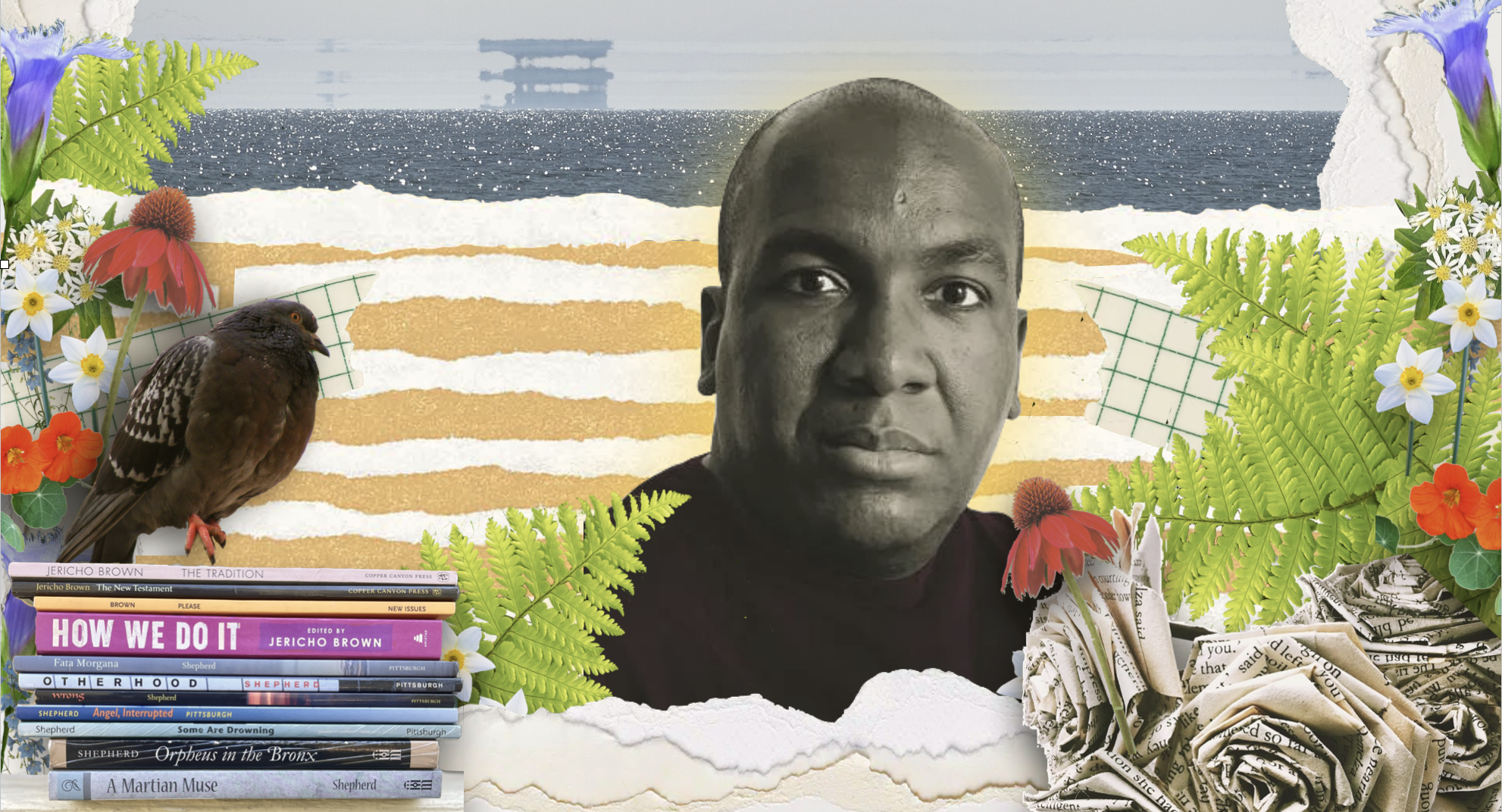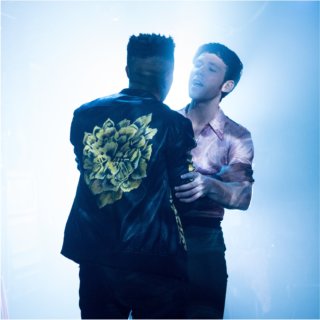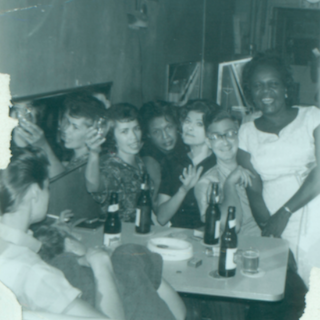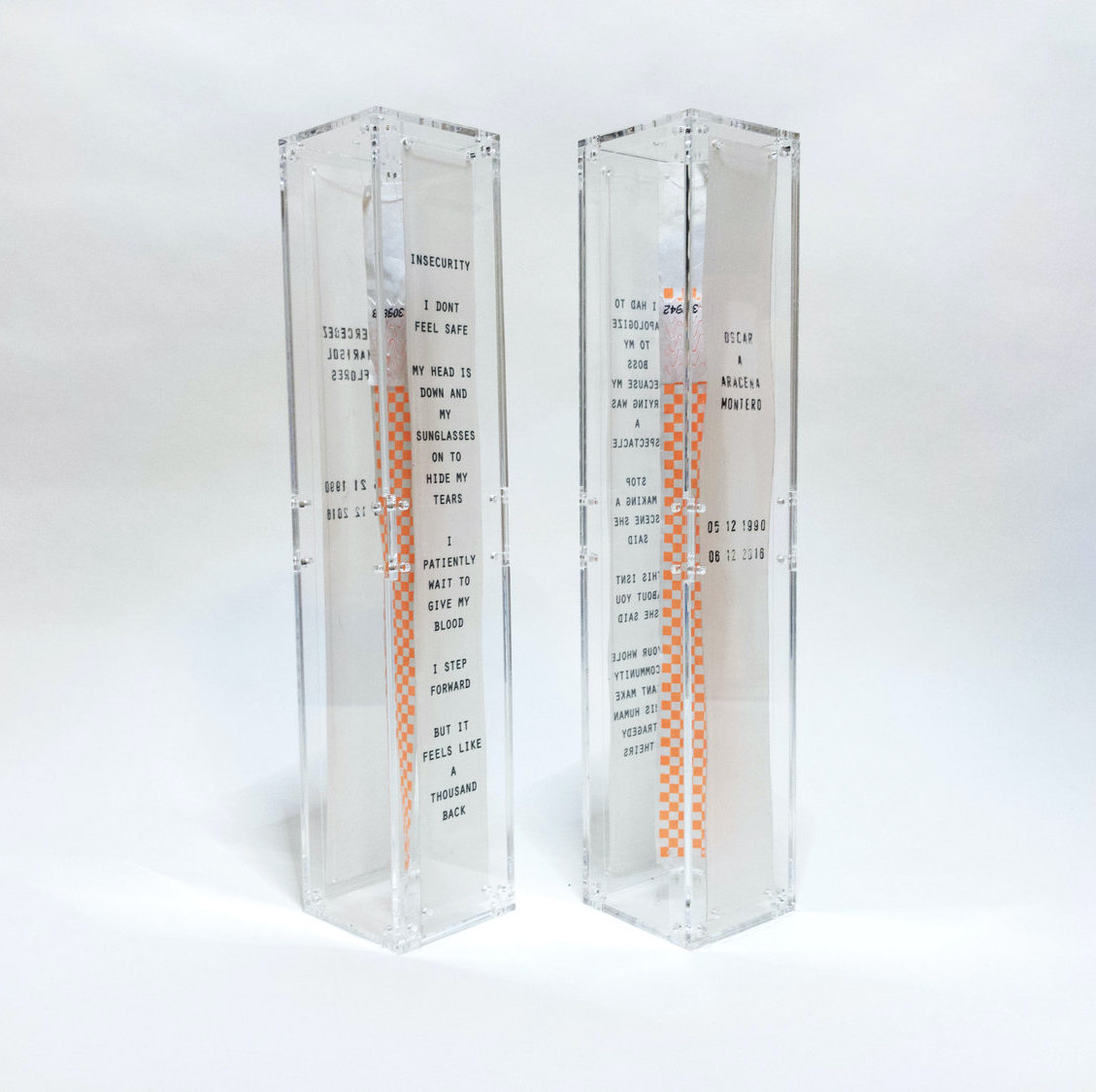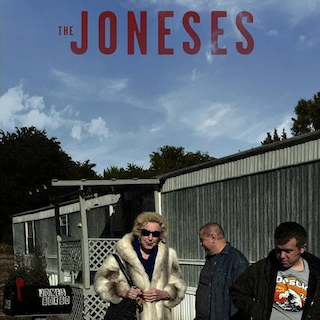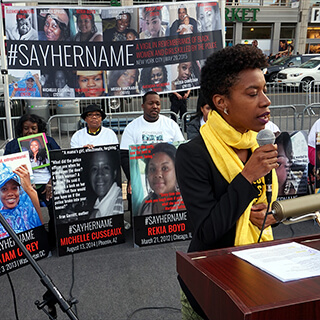Overview
Facing the disappearance of familiar LGBTQ+ spaces in Montgomery, Ms. Victoria Jewelle stitches together the pieces of her drag identity at other Alabama locations and in New Orleans. From Victoria's perspective—over twenty years of performances, protests, and intimate moments shared with members of her drag family—drag takes on a deeper resonance as an expression of identity.
Queer Intersections / Southern Spaces is a collection of interdisciplinary, multimedia publications that explore, trouble, and traverse intersections of queer experiences, past, present, and future. From a variety of perspectives, and with an emphasis upon the US South, this series, edited by Eric Solomon, offers critical analysis of LGBTQ+ people, practices, spaces, and places.
Introduction to Victoria
I first met Ms. Victoria Jewelle reflected in the bathroom mirror in front of me, slowly applying layers of makeup, constructing a face. She loaded a suitcase into her car and drove a few miles to a sports bar off the highway. I followed her into a crowded storage room at the back of the building, where half a dozen drag queens had transformed the space into a temporary dressing room. Eventually the lights dimmed and the queens paraded out one by one. Victoria emerged between two curtains, silhouetted against a solitary spotlight, suspended in time. The moment seemed to end quicker than it began: wigs and dresses zipped away, suitcases rolled out to the parking lot, cars peeling onto US 31.
This cycle repeated in front of me across Alabama—a small-town bar in the state’s northeast corner, a restaurant in a Montgomery strip mall, a gay bar in Dothan, a rustic event venue in Brundidge, and the steps of the Alabama State Capitol. It’s a pattern that has intensified somewhat since the closure of Montgomery’s last gay bar a few years ago, a loss that left Miss Victoria Jewelle criss-crossing the state to, in her own words, “keep our existence alive.”
Ms. Victoria Jewelle has performed for over twenty years in Alabama. Her drag identity emerged somewhat unexpectedly—a missing piece of expression that she outlined for me as an intractable desire to locate an indescribable piece of oneself. “It’s a wild thing to want to be something and you’re not sure how to get there,” she mused. She found this missing piece unexpectedly one night when living in Mobile. The feeling of seeing Victoria Jewelle, her drag identity, looking back at her for the first time made her feel whole.
This sense of wholeness has persisted even as Montgomery’s gay bars have closed, leaving Victoria searching and stringing together spaces to treat as empty vessels. Designed for other purposes, storage rooms and empty banquet halls are reimagined as the drag queens apply their makeup and zip up each other’s dresses. As a documentary filmmaker, I orient to the circumstances presented to me, including physical spaces. This disposition can be limiting—a fidelity to treat places as I see them rather than how others might. As I accompanied Victoria across Alabama, watching her perform against wood panels, rainbow streamers, American flags, and Bible verses, I discovered that, to Victoria, these spaces function as beads on a thread, extending a family legacy. As I worked through the footage, I began to reconfigure these places, bending them to her movements, allowing for her actions to extend without regard for the physical limitations. In this short documentary, Victoria’s movements—applying lipstick, blending makeup, blinking—begin in one place and finish in another. Her actions transport us between locations, linking pieces of her chosen family narrative—one that began for Victoria years ago when her drag mother applied her makeup for the first time.
I think back to Victoria describing a desire for something that couldn’t be located in the everyday world, something that felt, to her, almost indescribable but that she ultimately found staring back in a mirror. I saw the spaces Victoria inhabits as similarly unrecognizable. Temporarily reimagined through the perspective of a drag family searching for a home, these places are unbound by physical restrictions we normally use to organize our world. Victoria, the documentary, seeks to recognize this reimagining through the movements and feelings of a drag queen assembling the pieces of her drag identity. 
About the Filmmaker
John Haley is a documentary videographer, artist, and educator who examines fissures and seams in the American social fabric. His work juxtaposes personal narratives against institutional structures using observational cinematography, testimonies, symbolic imagery, and vivid, recurring soundscapes. Haley’s films have screened at DOC NYC, Palm Springs International ShortFest, Nashville Film Festival, Virginia Film Festival, St. Louis International Film Festival, New Hampshire Film Festival, Santa Fe International Film Festival, Tallgrass, and Sidewalk. His short documentary Sanctuary was named a Vimeo Staff Pick for 2025. Haley’s work has been supported by the Verdant Fund, the McCanna House Artist-in-Residence Program, the Southern Exposure Fellowship, the Anderson Center Residency, and more. He is currently an assistant professor of creative media at the University of Alabama in Tuscaloosa.
Banner: still image from Victoria video copyright 2025 by John Haley.

